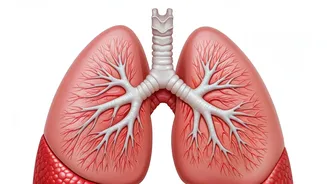Mindful Breathing Techniques
The World Health Organization (WHO) recognizes the value of incorporating mindful techniques into managing breathlessness. This approach goes beyond simply
addressing the symptoms and focuses on the underlying factors contributing to breathing difficulties. One of the primary techniques is meditation, specifically focusing on the breath. This practice involves paying close attention to the natural rhythm of your breathing, noticing the rise and fall of your chest or abdomen, and gently redirecting your focus whenever your mind wanders. Regular meditation can help reduce anxiety, which can often exacerbate breathlessness. In addition to meditation, various singing exercises are recommended. Singing encourages deep and controlled breathing, strengthens the muscles involved in respiration, and improves lung capacity. Singing provides a structured way to practice mindful breathing, making it a powerful tool for managing breathlessness.
Singing's Benefits Explained
Singing is not just an artistic expression; it's a therapeutic tool that can significantly improve respiratory health. When you sing, you naturally regulate your breathing, taking deeper, more controlled breaths. This helps to strengthen the diaphragm and the intercostal muscles, which are crucial for efficient breathing. Singing also enhances lung capacity and promotes better oxygen intake. Regular singing practice can lead to a decrease in breathlessness symptoms, as your respiratory system becomes more efficient. Beyond the physical benefits, singing can also reduce stress and promote relaxation, which can further alleviate breathing difficulties. Various singing exercises are helpful, including breathing exercises combined with singing scales or simple melodies. This combination ensures a comprehensive approach to respiratory health, making it an excellent method for managing breathlessness and improving overall well-being. It should be noted, though, that if any medical conditions are present, consulting with a healthcare professional is important before starting any exercise program.
Meditation: Finding Calm
Meditation is a cornerstone of managing breathlessness because it helps calm the mind and body. The core principle involves focusing your attention on the breath, observing its natural rhythm without judgment. When thoughts or distractions arise, gently guide your focus back to the breath. This practice enhances mindfulness, allowing you to become more aware of your body's signals and manage stress, a common trigger for breathlessness. Regular meditation helps reduce anxiety and promote relaxation, which eases respiratory symptoms. The benefits are significant; even short meditation sessions can make a difference. Setting aside a few minutes each day to practice mindful breathing exercises, such as deep belly breaths or alternate nostril breathing, can yield positive results. Over time, meditation cultivates a sense of calm and control, empowering individuals to navigate and manage their breathlessness more effectively, offering a pathway towards greater peace and resilience.
Vocal Exercises for Relief
Alongside singing and meditation, specific vocal exercises can provide additional relief from breathlessness. These exercises are designed to promote relaxation and enhance respiratory function. One effective method involves practicing vocalizations, such as humming or gentle vowel sounds. This technique helps to open the airways and improve airflow, which allows you to breathe with greater ease. Another approach involves relaxing the vocal cords and the muscles involved in breathing through the practice of singing scales and simple melodies. Deep breathing exercises, like diaphragmatic breathing, can also be incorporated into vocal exercises. These exercises encourage the use of the diaphragm, promoting deeper and more efficient breathing. The combination of vocal exercises can provide a comprehensive approach to managing breathlessness. Incorporating these techniques into your daily routine can help improve your respiratory health and enhance your overall sense of well-being.












